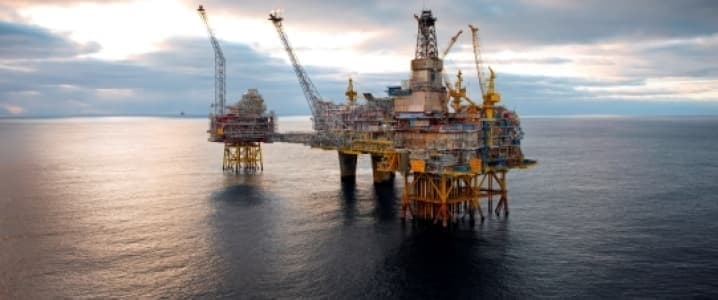
The oil and gas policies of the UK and Norway are increasingly diverging, impacting their respective energy landscapes significantly. While Norway continues to explore and develop its North Sea resources, the UK’s uncertain regulatory environment has led to a decline in domestic production and an increase in imports.
Norway is experiencing a boost in oil and gas production, becoming Europe’s top gas supplier, while the UK faces challenges as its mature fields deplete. According to energy specialist Tom Erik Kristiansen from Pareto, the differences in approach between the two countries have widened over the past five years. “In Norway, you have two or three of the biggest parties agreeing not to touch the oil and gas industry. In the UK, it is much more party political,” Kristiansen stated.
Norway has a long-standing commitment to its oil and gas sector, recognizing the economic opportunities and job creation it provides. The government is actively planning its 26th oil and gas licensing round, focusing on less-explored areas to counter an anticipated production decline starting in the early 2030s. Companies in Norway benefit from a generous refund policy, allowing them to reclaim 71.8% of losses from exploration activities, fostering a stable investment climate despite high taxes.
In stark contrast, the UK’s regulatory and tax framework has shifted frequently since 2022, creating a climate of uncertainty that has deterred investors. The introduction of the Energy Profits Levy (EPL) in response to the energy crisis in 2022 has compounded these issues. Oil and gas companies operating in the UK have expressed concerns about the lack of a predictable regulatory framework. Recent policy changes, including the removal of a 29% investment allowance, have led to a significant decline in exploration and production activities.
According to energy consultancy Wood Mackenzie, 2025 is projected to be the first year since 1960 without any exploration wells drilled in the UK North Sea. This decline has triggered an exodus of companies from the region, with notable exits including Apache, which announced plans to cease production at its UK assets by 2030. Apache cited unfavorable regulatory conditions as a reason for withdrawing investment from the UK.
The challenges facing the UK oil and gas sector were underscored when Ineos Energy announced it would halt investments in the UK, describing the current tax regime as “the most unstable fiscal regime in the world.” Chairman Brian Gilvary, a former chief financial officer at BP, has criticized the UK’s over-regulation and negative political sentiment towards the oil and gas industry, which he believes deters potential investors.
In response to these pressing issues, the UK government has initiated consultations regarding future tax regimes and licensing in the North Sea, with decisions anticipated later this autumn. The Offshore Energies UK (OEUK) association has urged the government to transition from the EPL to a more stable, profits-based tax system, while also modernizing licensing rules to facilitate access to new resources.
The UK’s oil and gas production has already declined by 40% over the past five years and is projected to halve again by 2030, according to OEUK. As the UK races against time to stabilize its energy sector, Norway remains proactive, with plans for new field developments ensuring continued production.
Norway’s commitment to its oil and gas sector is evident in the actions of its government. Terje Aasland, Norway’s Minister of Energy, emphasized the need for new discoveries to maintain Norway’s status as a reliable supplier of oil and gas to Europe. The country’s Government Pension Fund Global, often referred to as ‘Norway’s oil fund’, has amassed assets worth approximately $2 trillion, highlighting the significant role that oil and gas revenues play in the nation’s economy.
As the UK grapples with its energy policies, Norway appears poised to capitalize on its resource opportunities, reinforcing its position as a leading energy supplier in Europe. The contrasting trajectories of these two neighboring countries serve as a critical reminder of the impact that policy decisions can have on energy security and economic stability.







